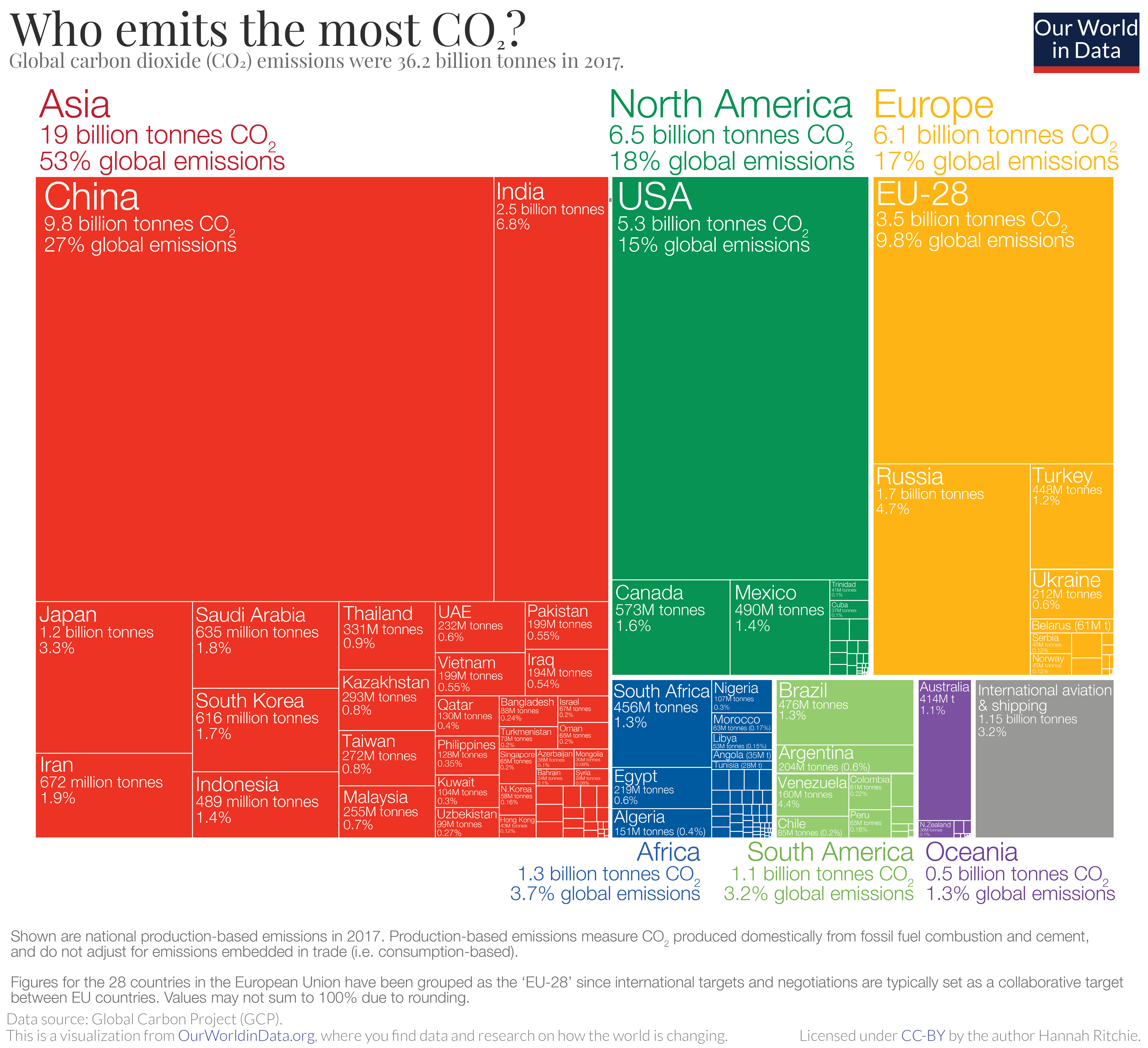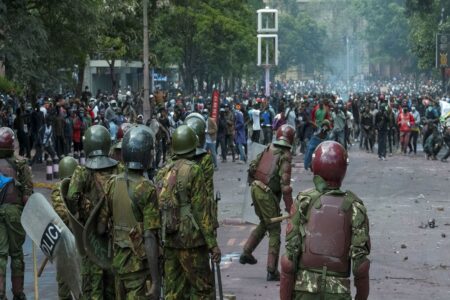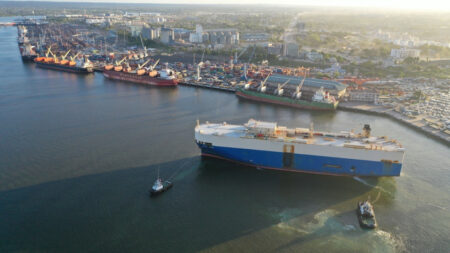- Ahead of COP29, Africa’s climate finance strategy is based in three core pillars: scaling up adaptation funding, boosting mitigation efforts, and improving access to carbon markets.
- Without financial support, Africa could experience an annual loss of 5% of its GDP by 2040 due to adverse weather.
- While the stakes are high, populations across the continent will be watching to see how global powers will answer Africa’s plea.
As leaders from across the world ready to gather in Baku, Azerbaijan, for the 29th United Nations Climate Change Conference (COP29), Africa is rallying for a spirited push to secure climate finance deals at scale.
This agenda was unveiled at the 12th Conference on Climate Change and Development in Africa, hosted by Ivory Coast in Abidjan. This meeting was held on the sidelines of the 1oth Special Session of the African Ministerial Conference on the Environment (AMCEN).
Bringing together stakeholders such as the African Development Bank (AfDB), the African Union Commission (AUC), the United Nations Economic Commission for Africa (ECA), and the Pan African Climate Justice Alliance (PACJA), the discussions focused on aligning Africa’s climate priorities ahead of COP29.
Africa’s low-emission but heavy impact
According to the high-level representation of governments in Africa, the continent remains disproportionately affected by climate change despite its minimal contribution to global emissions.
Cote d’Ivoire’s Minister for Environment, Sustainable Development, and Ecological Transition captured this stark reality in his opening remarks, noting, “Africa emits less than 4 per cent of total global greenhouse gas emissions, yet it is the most affected by the harmful consequences of climate change.”
This disconnect highlights the urgent need for international climate finance to support Africa’s mitigation and adaptation efforts. While developed countries are responsible for the bulk of emissions, Africa is bearing the brunt of its impacts, ranging from severe droughts to flooding, threatening millions of lives and livelihoods across the continent.

The challenge of closing the climate finance gap
One of the central themes of the Abidjan meeting was the acute shortage of climate finance reaching Africa. Despite the continent’s dire need, global climate finance currently falls short of expectations, with less than three percent of it directed toward sub-Saharan Africa annually.
This underfunding has created a significant financing gap, preventing African countries from fully implementing their climate action plans. According to the AfDB, Africa received just $30 billion per year for climate adaptation, while its needs are $277 billion per year, leaving a huge financing gap.
Prof. Anthony Nyong, Director for Climate Change and Green Growth at the AfDB: “The current global climate finance falls far short of African countries’ needs and expectations.” He reaffirmed the AfDB’s commitment to doubling its climate finance contributions to $25 billion by next year and emphasized the need to increase Africa’s share of global climate finance from 3 percent to 10 percent.
The urgency of closing the financing gap cannot be overstated, as the impacts of climate change threaten to derail Africa’s development progress. Without adequate financial support, the continent could experience an annual loss of 5 per cent of its GDP by 2040, according to the AUC Commissioner for Agriculture, Rural Development, Blue Economy, and Sustainable Environment, Ambassador Josefa Sacko.
Building a united African voice ahead of COP29
In addition to addressing the financial shortfall, the Abidjan meeting sought to build consensus among African nations on a unified approach to climate negotiations ahead of COP29. Ambassador Sacko stressed the importance of anchoring Africa’s negotiations on securing grants rather than loans or debt.
She called for a robust strategy that would focus on scaling up finance for climate adaptation projects, enhancing carbon markets, and ensuring that vulnerable populations, including women and marginalized communities, receive adequate protection from climate impacts.
“We must join forces ahead of COP29 with an emphasis on mobilizing climate finance at scale for the continent,” Sacko explained. “Our common position must focus on securing grants rather than debt, scaling finance for projects, and enhancing carbon markets.”
If fulfilled, this unified voice will be essential as Africa heads to COP29, where global leaders will debate the best ways to meet climate goals. To succeed, African countries need to present a strong case for the global community to prioritize the continent’s unique vulnerabilities while recognizing its critical role in safeguarding vital ecosystems such as the Congo Basin, which plays a crucial part in global carbon sequestration.
The role of nationally determined contributions (NDCs)
Another key objective of the meeting was to develop frameworks for robust nationally determined contributions (NDCs). These are country-specific plans detailing climate actions under the Paris Agreement. The AfDB and other stakeholders are working to ensure that African NDCs reflect the continent’s needs and ambitions while aligning with the outcomes of the 2023 global stocktake.
The stocktake is a key process under the Paris Agreement, designed to assess global progress toward climate goals and guide future actions and policies.
Prof. Nyong urged African leaders to increase their efforts in supporting climate finance mechanisms that can close the gap between current funding levels and the projected costs of implementing NDCs. He also pointed out that addressing this financing shortfall is critical for ensuring that African nations can build resilience to climate-related impacts while pursuing sustainable development.
Climate finance strategy for COP29
Looking ahead to COP29, Africa’s climate finance strategy is rooted in three core pillars: scaling up adaptation funding, boosting mitigation efforts, and improving access to carbon markets.
Scaling Up Adaptation Funding: Africa has made it clear that adaptation is its priority. This is because many African nations are already experiencing the devastating impacts of climate change, with some regions facing the prospect of becoming uninhabitable.
Adaptation measures such as strengthening infrastructure, improving agricultural resilience, and enhancing disaster preparedness are crucial for protecting vulnerable communities.
Boosting Mitigation Efforts: While adaptation is critical, African countries also recognize the importance of contributing to global mitigation efforts. This includes investing in renewable energy, reducing deforestation, and improving energy efficiency. The AfDB is playing a leading role in this area by supporting renewable energy projects and green growth initiatives across the continent.
Improving Access to Carbon Markets: Carbon markets present an opportunity for African countries to generate much-needed revenue while contributing to global emissions reduction efforts. By enhancing their participation in these markets, African nations can unlock new financing streams for climate projects. The Pan African Climate Justice Alliance (PACJA) has been advocating for fair and transparent carbon markets that benefit African communities rather than external investors.
Read also: How Zeroe’s innovation is bridging the climate finance gap in the global South
The Road to COP29 for Africa
As the world heads toward COP29, Africa’s voice will be pivotal in shaping the future of global climate finance. The continent’s leaders, institutions, and civil society organizations are calling for a just transition that recognizes Africa’s unique vulnerabilities while ensuring that it receives the financial support needed to address the impacts of climate change.
“We need to continuously increase our support and financing for Africa to address the growing impacts of climate change on national economies, societies, and ecosystems,” noted Prof. Nyong.
As the November 2024 COP29 negotiations start to unfold, the focus will be on whether the global community can rise to the challenge of mobilizing climate finance at scale to support Africa’s climate action ambitions. The stakes are high, and the world will be watching. Africa’s future—and the future of the planet—depends on it.











